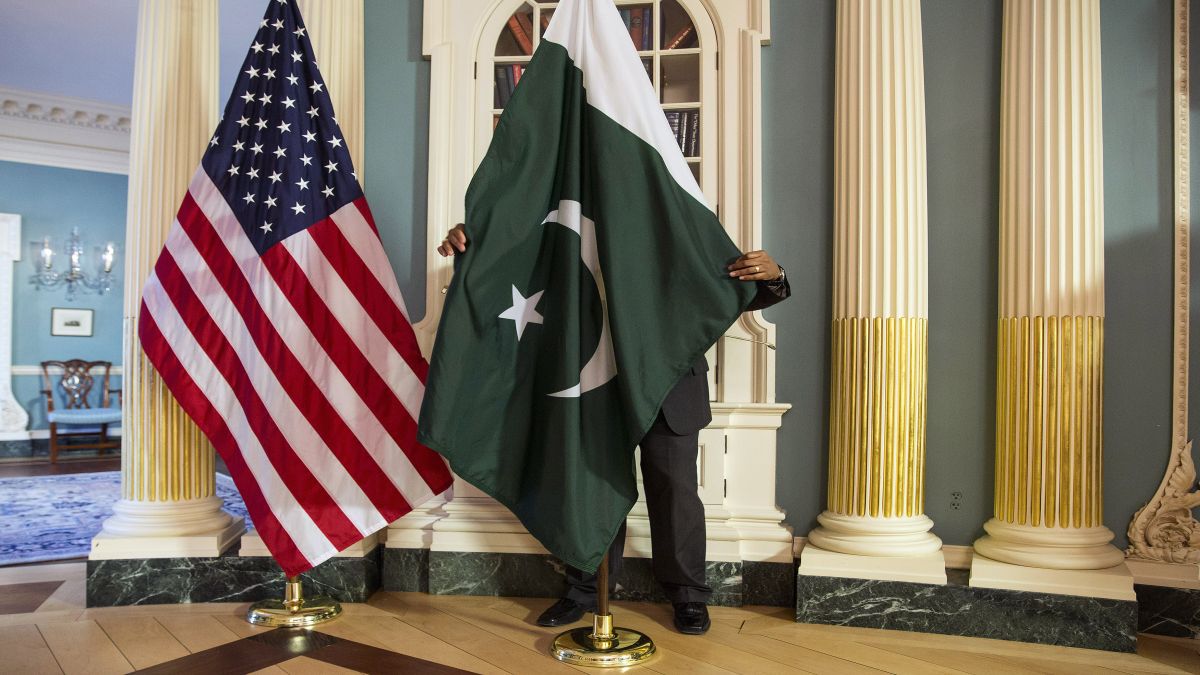After President Donald Trump recently lauded Pakistan’s “massive” energy reserves, the United States’ top diplomat in Islamabad has conveyed to Pakistan that US companies are showing “strong interest” in its oil and gas sector.
According to a Bloomberg report, citing Pakistan’s Ministry of Energy, US Charge d’Affaires Natalie A. Baker and Pakistan’s Petroleum Minister Ali Pervaiz Malik held a meeting in Islamabad last week focusing on strengthening cooperation in the energy sector.
After the meeting, Malik revealed that talks with American companies on a round of bids for exploration blocks was already underway.
“There is a strong and growing interest from US companies in Pakistan’s oil, gas, and minerals sector, in line with the vision of President Trump,” Bloomberg quoted Baker as saying based on a statement from the ministry.
The embassy would “actively facilitate direct linkages” between American and Pakistani companies, she added.
In a social media post in July, President Trump triggered renewed interest in Pakistan’s energy sector, claiming the country holds “massive oil reserves” — a comment that surprised many industry experts and contrasts with current geological estimates.
Trump’s remarks came as foreign investment in Pakistan’s energy sector remains subdued and coincided with escalating trade tensions with India. While touting Pakistan’s oil potential, Trump criticised New Delhi for importing Russian crude and hinted that Islamabad might “some day” supply oil to its neighbour — a jab that further strained US-India relations.
It’s a “political statement,” Bloomberg quoted Moin Raza Khan, an energy veteran and former chief executive officer of Pakistan Petroleum Ltd., the country’s second-largest energy explorer, as saying.
Impact Shorts
More Shorts“If Pakistan had massive oil reserves” then so many foreign companies wouldn’t have left, he added.
According to the Bloomberg report,, Pakistani officials often reference a 2013 US Energy Information Administration estimate of 9.1 billion barrels of recoverable shale oil. However, the actual figure is far lower — closer to just 238 million barrels, added the report, citing Iqbal Jawaid, analyst at Arif Habib Ltd.
That’s a modest reserve by global standards. Major producers like Saudi Arabia, Russia, and the US each boast billions of recoverable barrels, according to Rystad Energy. In contrast, Pakistan hasn’t seen a significant discovery in over a decade.
The country’s two most productive oil fields — Makori East and Nashpa — were discovered in 2011 and 2009, respectively. Makori East was found by a consortium including Hungary’s MOL Group, while Nashpa was led by state-run Oil & Gas Development Co., Pakistan’s largest explorer.
Few foreign players left
MOL has operated in Pakistan since 1999, but it remains one of the few foreign players left. In recent years, several major international firms have exited. Kuwait Petroleum began pulling out after over 40 years, TotalEnergies sold its fuel business stake, and Shell left in 2023 after 75 years.
In 2019, Eni SpA and Exxon Mobil explored offshore prospects in the Arabian Sea with local partners, but the effort yielded no significant results.
Despite setbacks, Pakistan is pushing to revive interest. Earlier this year, it launched a bidding round for 40 offshore blocks, including in the Indus Basin. Oil & Gas Development Co. is currently in talks with several US firms about participating, Bloomberg quoted CFO Anas Farook as saying at a recent Topline Securities conference.
Bids for Pakistan’s newly offered offshore exploration blocks are due in October, with hopes pinned on reversing a decline in domestic oil production.
The country’s output has been falling since peaking in 2018, according to Bloomberg, citing International Energy Agency data.
To meet demand, Pakistan spends about $11 billion annually on oil imports, nearly 20% of its total import bill, central bank figures show. A significant discovery could ease pressure on both the economy and the government.
“There would be significant risks for those looking to unearth Pakistani reserves, given shortages of technology and infrastructure and entrenched security challenges,” Bloomberg quoted Michael Kugelman, a non-resident Senior Fellow at Asia Pacific Foundation of Canada, a longtime analyst of the country, as saying.
“If these obstacles were easy to overcome, then we would have seen Pakistan tapping into these reserves instead of relying so heavily on oil imports, and we would have seen more external players getting involved,” he added.
With inputs from agencies


)

)
)
)
)
)
)
)
)



